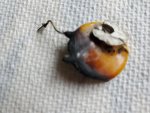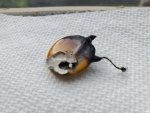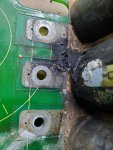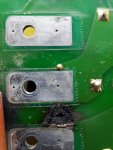Peter,
Here are the two sides of the ceramic capacitor? in question. Only one leg needed de-soldering as the other vaporized (thus the sad appearance)...
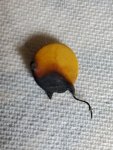
I haven't removed the silicon which held it to the electrolytic cap, but instead photographed her sister (after peeling her away from equivalent electrolytic partner). Same markings as posted by kloppk
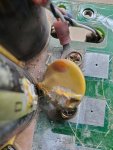
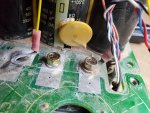
Here are the two sides of the ceramic capacitor? in question. Only one leg needed de-soldering as the other vaporized (thus the sad appearance)...

I haven't removed the silicon which held it to the electrolytic cap, but instead photographed her sister (after peeling her away from equivalent electrolytic partner). Same markings as posted by kloppk


Attachments
-
85 KB Views: 3



